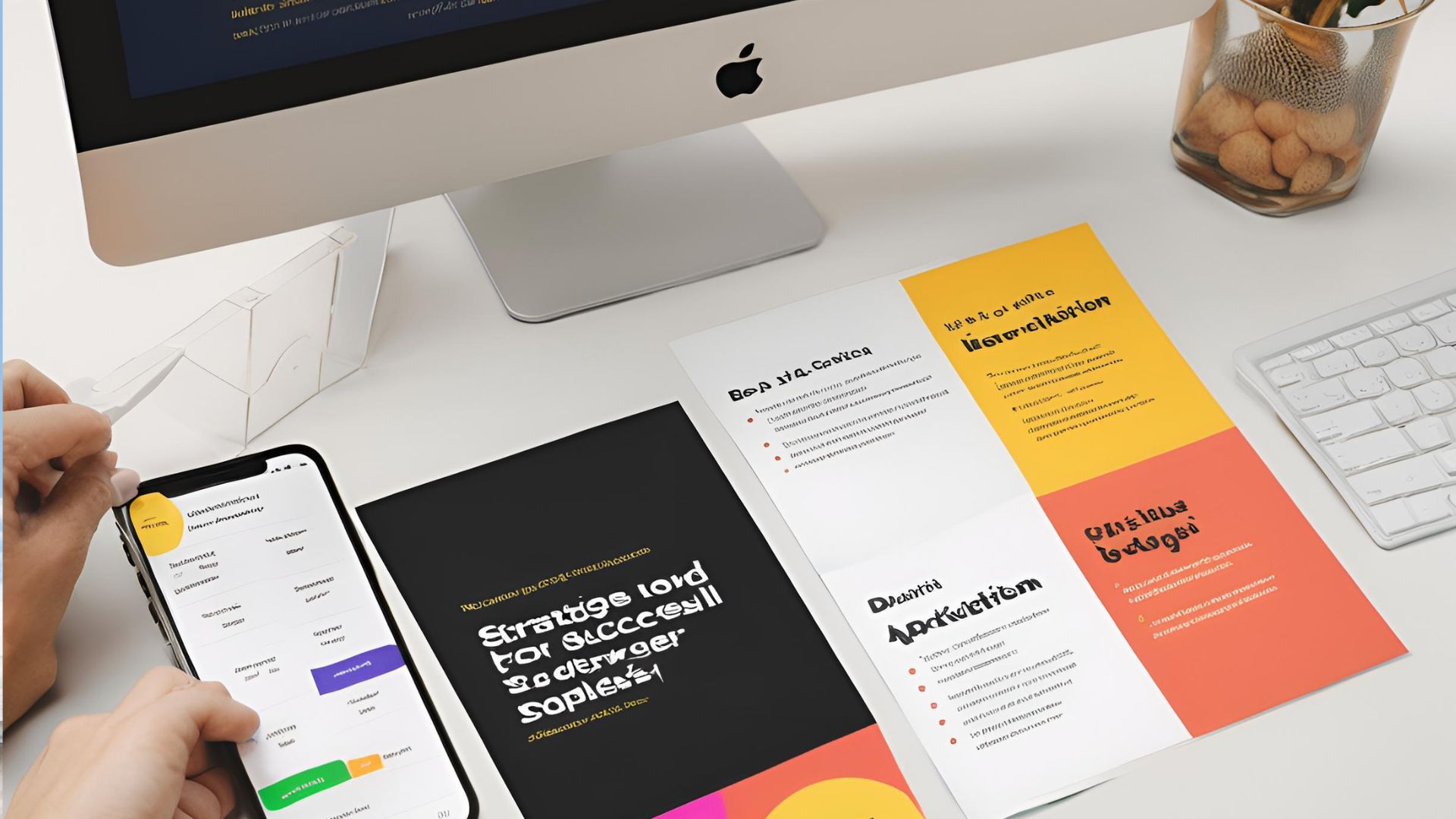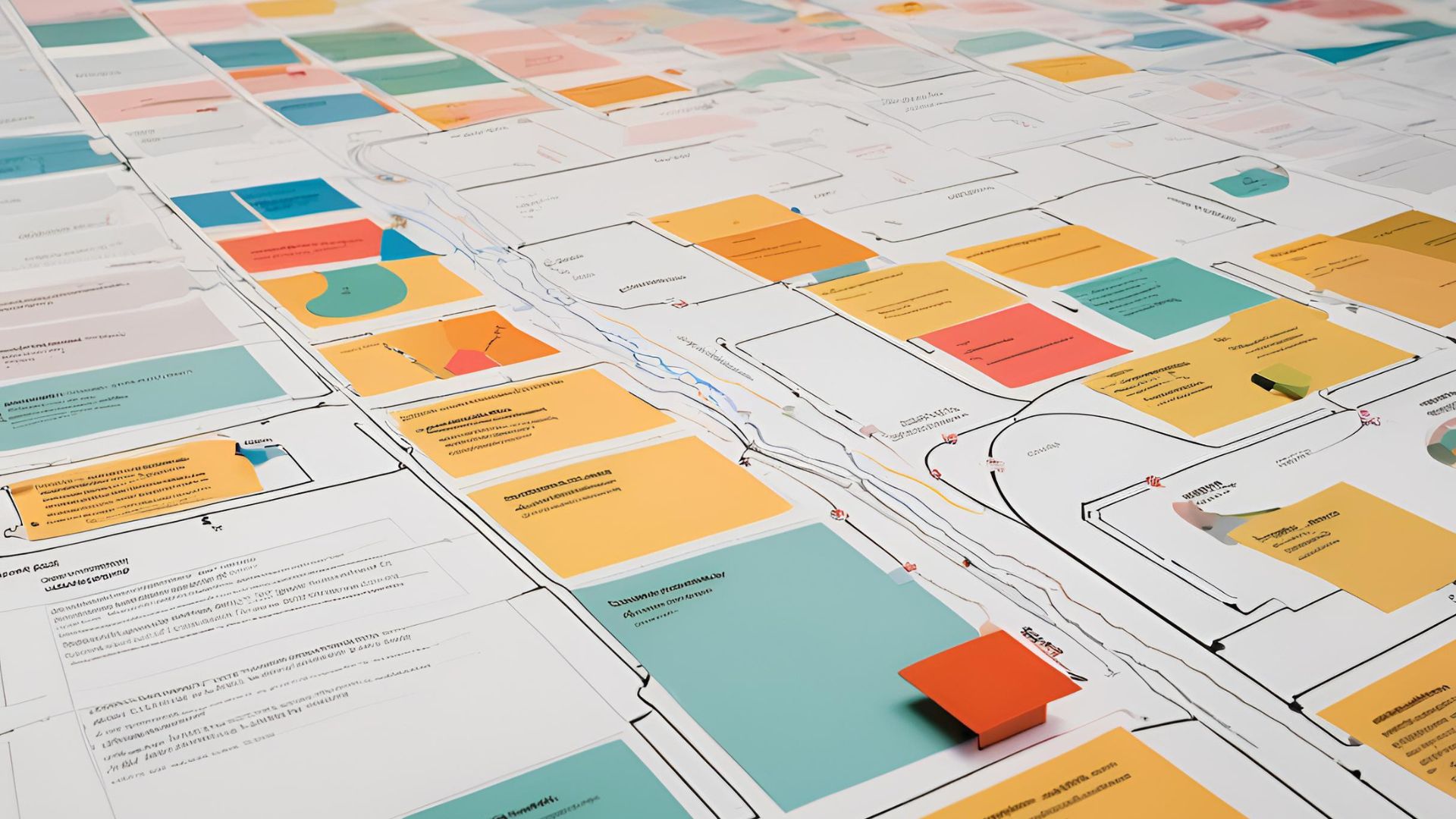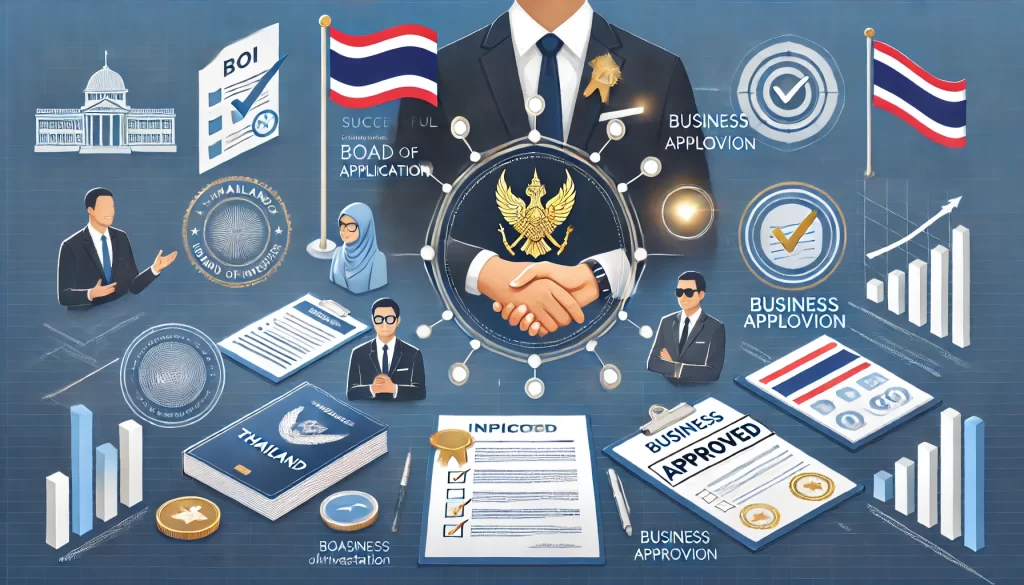🔍 Are you feeling overwhelmed by the BOI application process? You’re not alone. Many aspiring entrepreneurs find themselves lost in a maze of paperwork, regulations, and financial requirements. The journey to obtaining BOI approval can be daunting, but it doesn’t have to be a nightmare.
Imagine confidently navigating through each step of the application, armed with the knowledge to overcome common hurdles and maximize your chances of success. Whether you’re struggling with documentation, grappling with complex regulations, or unsure about meeting financial criteria, there’s a solution waiting for you.
In this comprehensive guide, we’ll unravel the mysteries of the BOI application process, explore the key challenges you might face, and equip you with powerful strategies to triumph. From understanding the basics to mastering the finer points, we’ll cover everything you need to know to turn your BOI application from a source of stress into a springboard for your business success. Let’s dive in and discover how you can make your BOI application journey smoother and more successful. 🚀
Understanding the BOI Application Process

Key components of a BOI application
The BOI application process consists of several crucial components that applicants must carefully address:
- Project Proposal
- Financial Projections
- Environmental Impact Assessment
- Legal Documentation
- Management Structure
| Component | Description | Importance |
|---|---|---|
| Project Proposal | Detailed business plan | High |
| Financial Projections | 3-5 year forecast | Critical |
| Environmental Impact | Sustainability assessment | Moderate to High |
| Legal Documentation | Company registration, licenses | Essential |
| Management Structure | Organizational chart, key personnel | Important |
Timeline expectations
The BOI application timeline can vary depending on the project’s complexity and completeness of submission:
- Pre-application consultation: 1-2 weeks
- Application preparation: 2-4 weeks
- Initial review by BOI: 4-6 weeks
- Clarifications and additional information: 2-4 weeks
- Final decision: 2-4 weeks
Total expected timeline: 3-5 months
Required documentation
A comprehensive BOI application typically requires the following documents:
- Completed application form
- Business registration certificates
- Audited financial statements (if applicable)
- Detailed project report
- Land ownership or lease agreements
- Environmental clearance certificates
- Tax compliance documents
- Bank statements or financial backing proof
Eligibility criteria
To qualify for BOI approval, projects must meet specific criteria:
- Minimum investment threshold
- Job creation potential
- Export orientation or import substitution
- Technology transfer or innovation
- Alignment with national development goals
Applicants should ensure their projects align with these criteria to enhance their chances of approval. With a clear understanding of these components, timelines, documentation requirements, and eligibility criteria, applicants can better prepare for the BOI application process. Next, we’ll explore the common challenges faced during this process and how to overcome them.
Common Challenges in BOI Applications

A. Incomplete or inaccurate documentation
One of the most common pitfalls in BOI applications is submitting incomplete or inaccurate documentation. This issue can significantly delay the process or even lead to rejection. To avoid this, applicants should:
- Double-check all documents for accuracy
- Ensure all required forms are filled out completely
- Verify that all supporting documents are up-to-date
Here’s a checklist of essential documents typically required:
| Document Type | Purpose | Common Errors |
|---|---|---|
| Business Plan | Outlines project details | Lack of financial projections |
| Financial Statements | Proves financial stability | Outdated or unaudited statements |
| Proof of Funding | Demonstrates capital availability | Insufficient evidence of funds |
| Legal Documents | Establishes legal structure | Missing certifications or registrations |
B. Navigating complex regulations
BOI regulations can be intricate and subject to frequent changes. Staying informed about current requirements is crucial. Consider:
- Regularly checking the BOI website for updates
- Consulting with legal experts specializing in BOI applications
- Attending BOI-sponsored seminars or workshops
C. Meeting financial requirements
Financial criteria often pose significant challenges. Applicants must:
- Ensure sufficient capital for the proposed project
- Demonstrate a solid financial track record
- Prepare detailed financial projections
D. Dealing with language barriers
For international applicants, language differences can complicate the process. To overcome this:
- Utilize professional translation services
- Hire local representatives fluent in both languages
- Request clarification on any unclear terms or requirements
E. Addressing environmental concerns
Environmental compliance is increasingly important in BOI applications. Applicants should:
- Conduct thorough environmental impact assessments
- Propose sustainable practices in their business plans
- Be prepared to implement eco-friendly technologies
By anticipating these challenges, applicants can better prepare themselves for the BOI application process, increasing their chances of success. Next, we’ll explore strategies for crafting a successful BOI application that addresses these common hurdles.
Strategies for a Successful BOI Application

Thorough preparation and research
Before diving into your BOI application, it’s crucial to conduct comprehensive research and preparation. This groundwork will significantly enhance your chances of success. Start by thoroughly reviewing the BOI’s official guidelines and requirements. Pay close attention to sector-specific regulations and any recent policy changes.
Key areas to focus on during your research:
- Industry trends and market potential in Thailand
- Specific BOI incentives applicable to your business
- Local labor laws and workforce requirements
- Environmental regulations and sustainability expectations
| Research Area | Why It’s Important | Key Resources |
|---|---|---|
| Industry trends | Demonstrates market viability | Industry reports, Thai government economic data |
| BOI incentives | Maximizes benefits for your business | BOI official website, investment promotion seminars |
| Labor laws | Ensures compliance and realistic planning | Thai Ministry of Labor website, legal consultants |
| Environmental regulations | Addresses sustainability concerns | Thai environmental protection agency, industry standards |
Seeking professional assistance
Now that you’ve laid the groundwork, consider enlisting expert help. BOI applications can be complex, and professional guidance can be invaluable. Experienced consultants can:
- Interpret intricate regulations
- Identify potential pitfalls in your application
- Streamline the documentation process
- Provide insights into the BOI’s decision-making criteria
Establishing strong local partnerships
Building robust local partnerships is a critical strategy for BOI application success. These partnerships can:
- Demonstrate your commitment to the Thai market
- Provide valuable local market insights
- Enhance your credibility with the BOI
- Facilitate smoother operations post-approval
Demonstrating economic benefits
To strengthen your application, clearly articulate the economic advantages your project will bring to Thailand. Focus on:
- Job creation and skill development for local workers
- Technology transfer and innovation
- Export potential and foreign exchange earnings
- Contributions to regional development
By highlighting these benefits, you align your project with Thailand’s economic goals, making your application more compelling to the BOI. With these strategies in place, you’ll be well-positioned to navigate the next crucial step: overcoming documentation hurdles in the BOI application process.
Overcoming Documentation Hurdles

Creating a comprehensive checklist
A well-organized checklist is crucial for navigating the BOI application process smoothly. Here’s a sample checklist to help you stay on track:
- Company registration documents
- Financial statements (last 3 years)
- Business plan
- Passport copies of shareholders
- Bank statements
- Tax clearance certificates
- Lease agreement or property ownership documents
- Environmental impact assessment (if applicable)
- Work permits for foreign employees
| Document Type | Purpose | Common Issues |
|---|---|---|
| Company registration | Proves legal status | Outdated information |
| Financial statements | Demonstrates financial health | Incomplete or unaudited |
| Business plan | Outlines project details | Lack of clarity or feasibility |
Obtaining certified translations
For non-Thai documents, certified translations are essential. Consider these tips:
- Use a reputable translation service
- Allow sufficient time for translation and certification
- Double-check accuracy before submission
- Keep original documents alongside translations
Organizing documents efficiently
Efficient document organization can significantly streamline your application process:
- Create a digital filing system
- Use clear, descriptive file names
- Maintain a master list of all documents
- Store backups in cloud storage
- Separate documents by category (financial, legal, etc.)
By implementing these strategies, you’ll be better equipped to overcome documentation hurdles and move forward confidently in your BOI application process. Next, we’ll explore how to navigate the complex regulatory landscape that often accompanies BOI applications.
Navigating Regulatory Complexities

Staying updated on policy changes
In the ever-evolving landscape of BOI regulations, staying informed about policy changes is crucial. To keep abreast of the latest updates:
- Subscribe to official BOI newsletters
- Follow BOI’s social media accounts
- Regularly check the BOI website for announcements
- Join industry associations that provide regulatory updates
Engaging with BOI officials
Direct communication with BOI officials can provide valuable insights and clarifications. Consider these approaches:
- Schedule consultations with BOI representatives
- Attend BOI-organized Q&A sessions
- Participate in industry forums where BOI officials are present
- Submit written inquiries for complex regulatory questions
Utilizing online resources and guides
The digital realm offers a wealth of information to navigate regulatory complexities:
| Resource Type | Examples | Benefits |
|---|---|---|
| Official BOI Guides | Application manuals, FAQs | Authoritative information |
| Third-party Analyses | Legal blogs, consultant reports | Alternative perspectives |
| Video Tutorials | BOI YouTube channel | Visual learning aids |
| Interactive Tools | Online eligibility checkers | Quick self-assessment |
Attending BOI seminars and workshops
Participation in BOI-sponsored events can significantly enhance your understanding of regulatory requirements:
- Gain firsthand knowledge from BOI experts
- Network with other applicants and industry professionals
- Receive updates on upcoming policy changes
- Clarify doubts in real-time Q&A sessions
By leveraging these strategies, you can effectively navigate the regulatory landscape and improve your chances of a successful BOI application. Next, we’ll explore how to address the financial requirements associated with the BOI application process.
Addressing Financial Requirements

A. Securing adequate funding
Securing adequate funding is a crucial step in addressing the financial requirements of your BOI application. To demonstrate your financial readiness, consider the following options:
- Personal savings
- Bank loans
- Angel investors
- Venture capital
- Crowdfunding
Each funding source has its pros and cons, as illustrated in the table below:
| Funding Source | Pros | Cons |
|---|---|---|
| Personal savings | Full control, no debt | Limited funds |
| Bank loans | Larger amounts available | Interest payments, collateral required |
| Angel investors | Expertise and networking | Equity dilution |
| Venture capital | Substantial funding, business support | Loss of control, high expectations |
| Crowdfunding | Market validation, no equity loss | Time-consuming, platform fees |
B. Presenting a robust business plan
A well-crafted business plan is essential for securing funding and convincing the BOI of your project’s viability. Your plan should include:
- Executive summary
- Market analysis
- Financial projections
- Marketing strategy
- Operational details
C. Exploring alternative financing options
Don’t limit yourself to traditional funding sources. Consider alternative options such as:
- Government grants
- Peer-to-peer lending
- Equipment financing
- Invoice factoring
These alternatives can provide additional flexibility and may be more suitable for certain business models.
D. Demonstrating long-term financial viability
To showcase your project’s long-term potential, focus on:
- Realistic revenue projections
- Detailed cost analysis
- Break-even point calculation
- Cash flow forecasts
- Contingency plans
By addressing these financial requirements comprehensively, you’ll significantly improve your chances of a successful BOI application. Next, we’ll explore strategies for maximizing your approval odds.
Maximizing Chances of Approval

Highlighting unique selling points
When maximizing your chances of BOI approval, it’s crucial to emphasize your project’s unique selling points (USPs). These distinguishing features set your proposal apart from others and demonstrate its potential value to the country’s economy.
- Innovative product or service
- Cutting-edge technology
- Untapped market niche
- Sustainable business model
Emphasizing technology transfer
Technology transfer is a key factor in BOI approval. Showcase how your project will introduce advanced technologies and expertise to the local market, fostering innovation and skill development.
| Technology Transfer Benefits | Impact on Local Economy |
|---|---|
| Skill development | Enhanced workforce competitiveness |
| Knowledge sharing | Increased productivity |
| Industry modernization | Economic growth |
| R&D collaboration | Innovation ecosystem |
Showcasing job creation potential
Highlight the employment opportunities your project will generate, including:
- Direct job creation
- Indirect employment through supply chains
- Skills training and development programs
- Long-term career growth prospects
Aligning with national development goals
Demonstrate how your project aligns with the country’s economic objectives and development plans. This alignment shows that your investment will contribute to the nation’s broader goals.
Demonstrating environmental responsibility
Emphasize your commitment to environmental sustainability through:
- Eco-friendly practices
- Renewable energy usage
- Waste reduction initiatives
- Compliance with environmental regulations
By focusing on these key areas, you’ll significantly enhance your BOI application’s appeal and increase your chances of approval. Remember to provide concrete examples and data to support your claims in each of these crucial aspects.
The BOI application process can be complex, but with the right approach, it becomes manageable. By understanding the common challenges and implementing effective strategies, applicants can significantly improve their chances of success. From overcoming documentation hurdles to navigating regulatory complexities and addressing financial requirements, each step requires careful attention and preparation.
Remember, a successful BOI application is not just about meeting the basic criteria. It’s about presenting a compelling case that aligns with the BOI’s objectives and demonstrates your project’s potential for economic contribution. By staying informed, seeking expert guidance when needed, and thoroughly preparing your application, you can navigate the process with confidence and maximize your chances of approval.

